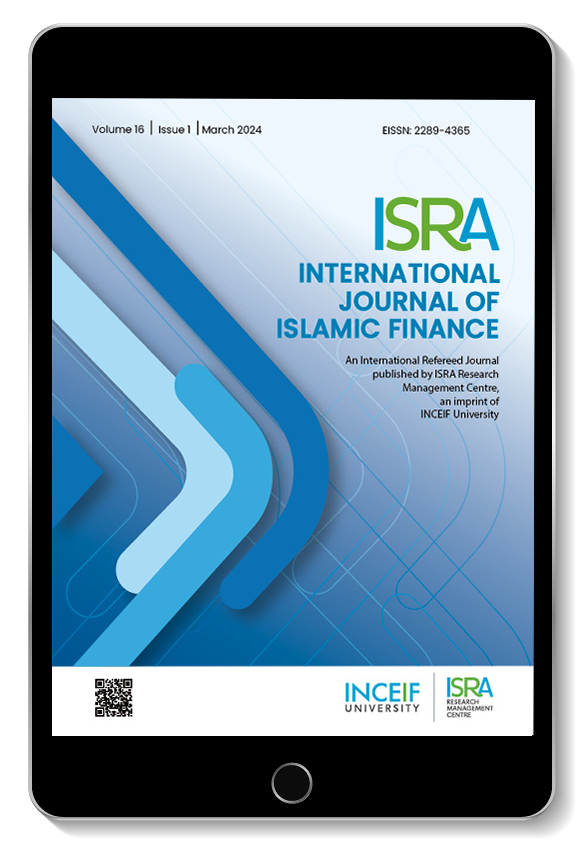非营利组织的智力资本:waqf机构的经验教训
IF 1.4
Q2 BUSINESS, FINANCE
引用次数: 18
摘要
本研究旨在强调智力资本(IC)对waqf(伊斯兰捐赠)机构运作的重要性,因为很少有研究讨论与非营利性宗教组织,特别是waqf组织有关的这一问题。因此,本研究希望对waqf机构在人力资本熟练度、运作效率以及绩效的有效性和可持续性方面的发展有所贡献。设计/方法/方法作者回顾了大量关于集成电路各个方面的相关研究,以强调在非营利组织(NPOs)和waqf机构的运作中考虑集成电路的重要性。研究结果本研究强调了资讯科技在高等教育机构运作中的重要性。它提供了一个平台,有助于理解waqf机构中现有的障碍和挑战(如缺乏问责制、缺乏资金、管理不善和缺乏训练有素的劳动力等),并通过考虑知识和集成提供潜在的解决方案。研究限制/影响本研究是非营利组织背景下集成的概念分析。未来的研究应进行实证检验,这将提供更详细的讨论和丰富的见解,对国际合作问题和非营利组织的表现,特别是在waqf机构的情况下。本研究为waf机构和其他非营利组织提供了几个重要的启示,因为它阐明了在其运营中对知识和集成的考虑。原创性/价值据作者所知,本研究首次从集成集成的角度讨论waqf问题,并为waqf机构的运作提供了一个完整的框架。本文章由计算机程序翻译,如有差异,请以英文原文为准。
Intellectual capital in non-profit organisations: lessons learnt for waqf institutions
Purpose
This study aims to highlight the importance of intellectual capital (IC) for the operation of waqf (Islamic endowment) institutions, as few studies have discussed this issue in relation to non-profit religious organisations, particularly waqf organisations. Consequently, this study hopes to contribute to the development of waqf institutions in terms of human capital proficiency, the efficiency of operations and the effectiveness and sustainability of performance.
Design/methodology/approach
The authors reviewed a significant body of relevant studies written on various aspects of IC, to highlight the significance of considering IC in the operation of non-profit organisations (NPOs) and waqf institutions.
Findings
This study highlights the importance of IC in the operation of waqf institutions. It provides a platform that facilitates understanding of the existing obstacles and challenges in waqf institutions (such as lack of accountability, lack of funding, mismanagement and lack of trained labour, among others) and offers potential solutions through the consideration of knowledge and IC.
Research limitations/implications
This study is a conceptual analysis of IC in the context of NPOs. Future studies should conduct empirical testing, which will provide more detailed discussion and enriching insights into the issue of IC and the performance of NPOs, particularly in the case of waqf institutions.
Practical implications
This study provides several important implications for waqf institutions and other NPOs, as it sheds light on the consideration of knowledge and IC in their operations.
Originality/value
To the best of the authors’ knowledge, this study is the first to discuss the issues of waqf in the light of IC and provide an integrated framework for the operation of waqf institutions.
求助全文
通过发布文献求助,成功后即可免费获取论文全文。
去求助
来源期刊

ISRA International Journal of Islamic Finance
BUSINESS, FINANCE-
CiteScore
3.40
自引率
17.40%
发文量
18
审稿时长
20 weeks
期刊介绍:
It is the aspiration of the editorial committee that IJIF achieves the highest rank in quality and substance. It is thus our aim that the journal be carried in the Thompson Reuters’ ISI and Scopus databases. By ensuring high standards in articles published in Islamic finance we ensure that further innovation and research is carried out and promoted in the Islamic finance industry and academia. IJIF publishes 2 issues per annum.
 求助内容:
求助内容: 应助结果提醒方式:
应助结果提醒方式:


